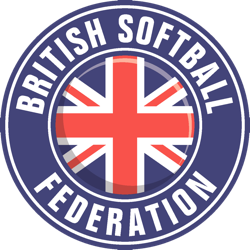 The 2015 European Softball Federation Congress was held in conjunction with the European Baseball Congress on 12-13 February in Hoofdoorp, Holland, and a number of discussions and decisions revolved around tournaments.
The 2015 European Softball Federation Congress was held in conjunction with the European Baseball Congress on 12-13 February in Hoofdoorp, Holland, and a number of discussions and decisions revolved around tournaments.
And when the draw was held to establish pools for European Championships this year, both GB teams involved came out with good results.
BSF President Stella Ackrell represented British softball at the Congress, with BSF Treasurer Mike attending in his role as ESF Technical Director.
General matters
As always, the Congress, which held its plenary session on Saturday after its various Commissions met on Friday, considered a wide range of topics. Most of the topics of interest to British softball were concerned with tournaments:
- Regulations have been changed regarding pick-up players (PUPs) for European club competitions in both fastpitch and slowpitch. Previously, all non-club members were regarded as PUPs, and teams are limited to three PUPs in fastpitch and four in slowpitch. Now, however, clubs are free to designate who their club members are, and the effect of this is that any player from an ESF member country can be considered a club member and does not have to be counted as a PUP. However, players from non-ESF member countries (eg, America, Canada, Australia etc) still have to be counted as PUPs.
- An effort led by Mike Jennings has been successful in changing an ESF financial regulation that was proving a stumbling block to British teams seeking to enter European competitions. ESF regulations are that national and club teams must submit entry forms for European competitions by 31 December of the previous year, but can withdraw before the end of February without having to pay some or all of the entry fee as a penalty. However, every entry to a European competition requires that country to provide an umpire (not necessarily for the same competition), and in the recent past, when a team entered and then withdrew, the country was still liable for 375 euros as a penalty to cover ESF costs to change umpire assignments. This cost was invariably passed on to the club concerned, and the effect was that clubs really had to make their final entry decision by 31 December, as subsequent withdrawal would be costly. The ESF has now agreed that this regulation is not to be enforced in future, so the February withdrawal date can once again become realistic.
- The dates for the 2017 European Women’s Championships have been moved forward from 16-22 July to 25 June-1 July. The effect is to keep this tournament well clear of the 2017 WBSC Junior World Championships in Florida (24-30 July) and the European Slowpitch Championships (late July or early August), which should make things easier for British players who might be selected for more than one of these events.
- ISF Tournaments Director Laurie Gouthro attended the Congress, and reported that 14 countries have already expressed interest in entering the next WBSC world slowpitch event, scheduled for November 2016. In light of this, there is a strong possibility that the event will be run as the first-ever WBSC Co-ed Slowpitch World Championship instead of as a World Cup – a decision that the ISF Board will make in due course. This would be an outcome that the British Softball Federation has long advocated and a major advance for the profile and importance of slowpitch worldwide.
- This year’s Co-ed Slowpitch Super Cup, in which Chromies and Pioneers are scheduled to play, has had so many entries that it may become a full Monday to Saturday tournament instead of starting, as scheduled on Tuesday 2 August. Fifteen teams have entered so far, and if there is still something like that number when the withdrawal deadline has passed at the end of February, then the schedule will be expanded.
- Starting in 2012, the ESF converted the former European Minime (Under-13) Girls’ Championships into the Massimo Romeo Youth Cup, with countries able to enter both national and/or club teams to give more young players European experience. Now the ESF is considering allowing both boys and girls to play on teams that enter this competition, though countries will need to be consulted and male/female ratios and perhaps pitching restrictions will need to be established if the plan is to go ahead.
- The ESF had planned to run its first-ever Men’s Slowpitch Championships this summer, but the event has had to be postponed for lack of entries and lack of a host. The ESF will try to revive the idea for 2018.
- Two other proposed new tournaments this year – Masters (over-35) events for men’s and women’s fastpitch teams -- may also be postponed for lack of entries. It’s possible that the ESF is trying to introduce too many new competitions at the same time, but the expansion of competition opportunities in European softball is to be welcomed.
European Championship draws
Every year at the ESF Congress, draws are made, a bit like those at the football World Cup, to determine which pools countries will wind up in at European Championship competitions. The British Softball Federation has complained to the ESF in the past about this practice, since it tends to distort seedings earned at the previous tournament, and we have often been losers rather than the winners from this practice.
This time, however, British teams have benefitted from the system.
The two European Championships in which British teams will compete this summer are the Junior (Under-19) Women’s Fastpitch Championships and the Men’s Fastpitch Championships. When these competitions were last held in 2014, both GB teams finished fourth. That was a highest-ever finish for the GB Junior Women, but a slight regression for the GB Men, who had finished third on the previous three occasions.
European Junior Women’s Championship
The results of the draw for the initial round-robin pools for the 2016 European Junior Women’s Championships, with 13 teams entered, are as follows, with final positions from 2014 in brackets:
POOL A
Italy (2)
Spain (10)
Serbia (11)
Poland (new entry)
POOL B
Great Britain (4)
Lithuania (8)
Israel (14)
POOL C
Czech Republic (1)
Belgium (7)
Denmark (12)
POOL D
Russia (3)
Germany (9)
Croatia (13)
This outcome is important for GB, which would reasonably expect to win Pool B, because eight teams will go forward to the first playoff round, but pool winners will have an easier schedule and a better chance of getting to the Page Playoff round, at which point a medal is one win away.
European Men’s Championship
The results of the draw for the initial round-robin pools for the 2016 European Men’s Championships, with a record 11 teams currently entered, are as follows, with final positions from 2014 in brackets:
POOL A
Denmark (2)
GB (4)
Israel (5)
Croatia (7)
Sweden (new entry)
Ireland (new entry)
POOL B
Czech Republic (1)
Netherlands (3)
Belgium (6)
Serbia (new entry)
Germany (new entry)
Although little information is available about the four countries entering the Men’s Championships this year for the first time, a quick glance would suggest that the GB Team, which this year expects to be more heavily GB-based in terms of players, is in the pool which will give them a better chance of getting to playoffs in a relatively good position.
